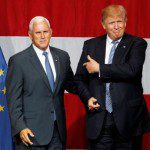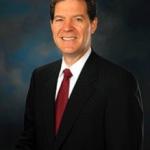I’m late to this, but Peter Wehner had a devastating takedown of Donald Trump’s theology earlier this week.
Excerpt:
What Mr. Trump admires is strength. For him, a person’s intrinsic worth is tied to worldly success and above all to power. He never seems free of his obsession with it.
And:
To better understand Mr. Trump’s approach to life, ethics and politics, we should not look to Christ but to Friedrich Nietzsche, who was repulsed by Christianity and Christ.
You should read the whole thing. Here’s why it’s especially important.
First, Wehner makes the argument that it is sensible and prudent to question Trump’s theology. We are often tempted to say that such things are off limits, since we have a secular government and the Constitution forbids religious tests for office. But Whener says that when a candidate’s values seem completely disconnected from any responsible interpretation of his professed faith, we are right to point that out.
It is also significant that Wehner goes beyond a mild critique of leaders in the Christian right with whom he disagrees. He rebukes evangelical leaders by name for “the lengths Mr. Trump’s supporters will go to in order to rationalize their enthusiastic support of him.” Wehner’s list of sellouts include one who was never influential (Robert Jeffress), one whose influence waned long ago (James Dobson), and some who were well regarded by evangelical elites until just this year (Jerry Falwell, Jr. and Eric Metaxas).
Examining a candidate’s theology is about more than what it says about a prospective President Trump, Wehner argues. “It is also revealing for what it says about Christians who now testify on his behalf.”
Wehner:
The calling of Christians is to be “salt and light” to the world, to model a philosophy that defends human dignity, and to welcome the stranger in our midst. It is to stand for justice, dispense grace and be agents of reconciliation in a broken world. And it is to take seriously the words of the prophet Micah, “And what does the Lord require of you but to do justly, and to love kindness and mercy, and to humble yourself and walk humbly with your God?”
Evangelical Christians who are enthusiastically supporting Donald Trump are signaling, even if unintentionally, that this calling has no place in politics and that Christians bring nothing distinctive to it — that their past moral proclamations were all for show and that power is the name of the game.
This is more than just a little fissure in an otherwise rock-solid Christian Right. The gap between Trump-supporting and Trump-opposing evangelical leaders is now a chasm, widened over time by differences in approach, emphasis, rhetoric, and tactics.
Conservative evangelicals are largely stuck with each other, because while they can and do draw boundaries over doctrine, they cannot easily kick people out for too much or too little uncritical support of the Republican Party. Their intramural disagreement about whether to support Ted Cruz or Marco Rubio could be bridge in private prayer meetings or post-election strategy sessions. Trump is qualitatively different. Besides being even more inexperienced and woefully less knowledgeable than these young first-term senators, Trump is erratic, obnoxious, and unchristian by any definition of the term.

“Mr. Trump’s entire approach to politics,” Wehner concludes, “rests on dehumanization. If you disagree with him or oppose him, you are not merely wrong. You are worthless, stripped of dignity, the object of derision.” Wehner certainly does not dehumanize Dobson, Metaxas, and the rest of Trump’s evangelical fan club.
But as the campaign unfolds, we should pay close attention to what evangelical leaders say about voting for Trump, and what their words imply about each other.















